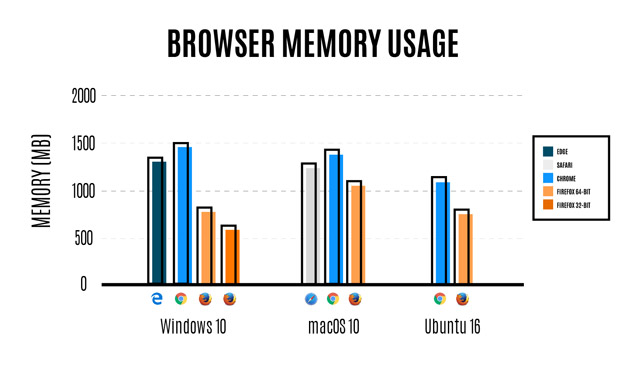Mozilla Launches Firefox 54 With Multiprocess Support, Rips 'Memory Hog' Google Chrome
It’s been eight years in the making, but Mozilla is now rolling out multiprocess support to its production branch of Firefox via the Electrolysis (E10s) project. Firefox 54 is being billed as “the best Firefox ever” and uses its multiprocess support to enable web users, who often have a dozen (or dozens of) tabs open at a time, to enjoy a faster and more stable browsing experience.
In the case of Firefox 54, E10s spreads all open tabs across up to four open processes. This allows Firefox 54 to make better use of system resources, and in the event that one rogue tab causes issues that could hamper browser performance, it can be shut down without affecting your entire session.
“This means that a heavy, complex web page in one tab has a much lower impact on the responsiveness and speed in other tabs,” writes Mozilla’s Nick Nguyen. “The performance improvements are remarkable. Besides running faster and crashing less, E10S makes websites feel more smooth. Even busy pages, like Facebook newsfeeds, spool out smoothly and cleanly.”
“These additional processes can potentially run across multiple computing cores, so it’s much less likely for web pages to negatively impact each other or the performance of the web browser in general,” adds Ryan Pollock in a separate blog post that goes into more detail about E10s. “And, if a content process crashes, it should not affect other content processes and the web pages displaying in them.”
Increasing the number of processors within Firefox would traditionally be associated with additional memory overheard, but Mozilla says that limiting the number of available processes to four allows it to better conserve resources. It also explains why Google Chrome has earned a reputation for being an incredible memory hog, given that each browser tab by default is given its own process. “Each of those processes has its own memory — with their own instance of the browser’s engine,” adds Pollock. “One open tab in Chrome typically consumes hundreds of megabytes of RAM.”
Mozilla also gets in another direct dig at Chrome, charting memory usage of Firefox against major web browsers on Windows 10, macOS and Linux. Not surprisingly, Chrome is the worst offender when it comes to memory usage, while Firefox 54 is shown as the big winner. While Pollock admits that no browser is perfect for all situations, he contends that Firefox 54 at least “won’t suck up memory and slow down your computer as Chrome will sometimes do.”
Firefox 54 is available right now for Windows, macOS and Linux.



